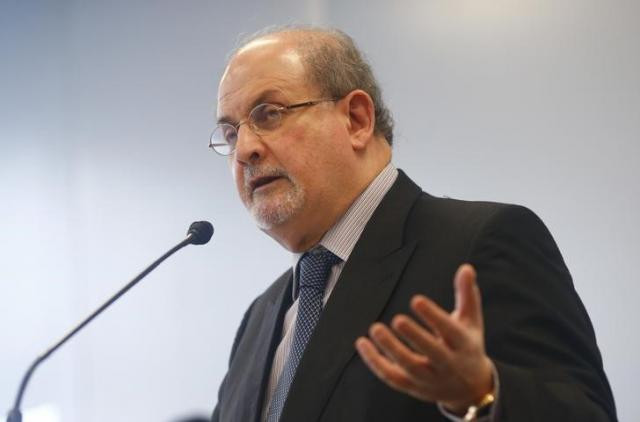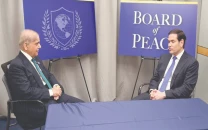Iranian media outlets add $0.6m to bounty for killing Salman Rushdie
Late Ayatollah Khomeini, issued a fatwa, calling on Muslims to the kill the author

PHOTO: REUTERS
The leader of Iran's 1979 Islamic revolution, the late Ayatollah Ruhollah Khomeini, issued a fatwa, or religious edict, that called on Muslims to the kill the author after his book was condemned as blasphemous, forcing him into years of hiding.
Salman Rushdie compares Imran Khan to Qaddafi
Iranian hardliners say Khomeini's decree is irrevocable and eternal after his death. A wealthy Iranian religious organisation offered $2.7 million reward to anyone carrying out the fatwa and in 2012 it increased the amount to $3.3 million.
The semi-official Fars news agency published a list of 40 news outlets adding to the pot. Fars itself earmarked $30,000.
"These media outlets have set the $600,000 bounty on the 27th anniversary of the historical fatwa to show it is still alive," Mansour Amiri, organizer of a digital technology exhibition at which the money was announced this month, told Reuters.
Amiri is the head of the Seraj Cyberspace Organisation, which is affiliated to the Basij volunteer militia, allied to the elite Revolutionary Guards established to defend the values of the revolution.
Jaipur Literature Festival cancels Salman Rushdie video address
The head of the militia visited the exhibition, Farsi said.
Rushdie's agent said he had no comment. Iran's Foreign Ministry was not immediately available to comment
In 1998, Iran's pro-reform government of President Mohammad Khatami distanced itself from the fatwa, saying the threat against Rushdie was over after he had lived in hiding for nine years. The book's Japanese translator was stabbed to death in 1991 and other people involved in publishing it were attacked.
But Khomeini's successor as Supreme Leader, Ayatollah Ali Khamenei, said in 2005 that the fatwa was still valid and three hardline clerics called on followers to kill Rushdie.
With the landmark nuclear deal with world powers sealed last year, followed by lifting of international sanctions, pragmatist President Hassan Rouhani is trying to end Iran's isolation with the West.
However, despite the government's willingness for wider engagement, hardline allies of Khamenei fear that opening up to the West will eventually weaken their influence and the legitimacy of the Islamic Revolution.
Imran Khan calls Salman Rushdie a ‘self-hating’ Muslim
The deal has intensified Iran's political infighting ahead of two crucial elections on Friday.
A hardline watchdog body, the Guardian Council, has disqualified thousands of Rouhani allies, barring them from entering the race for parliament and Assembly of Experts, which has power to appoint the supreme leader.



















COMMENTS
Comments are moderated and generally will be posted if they are on-topic and not abusive.
For more information, please see our Comments FAQ